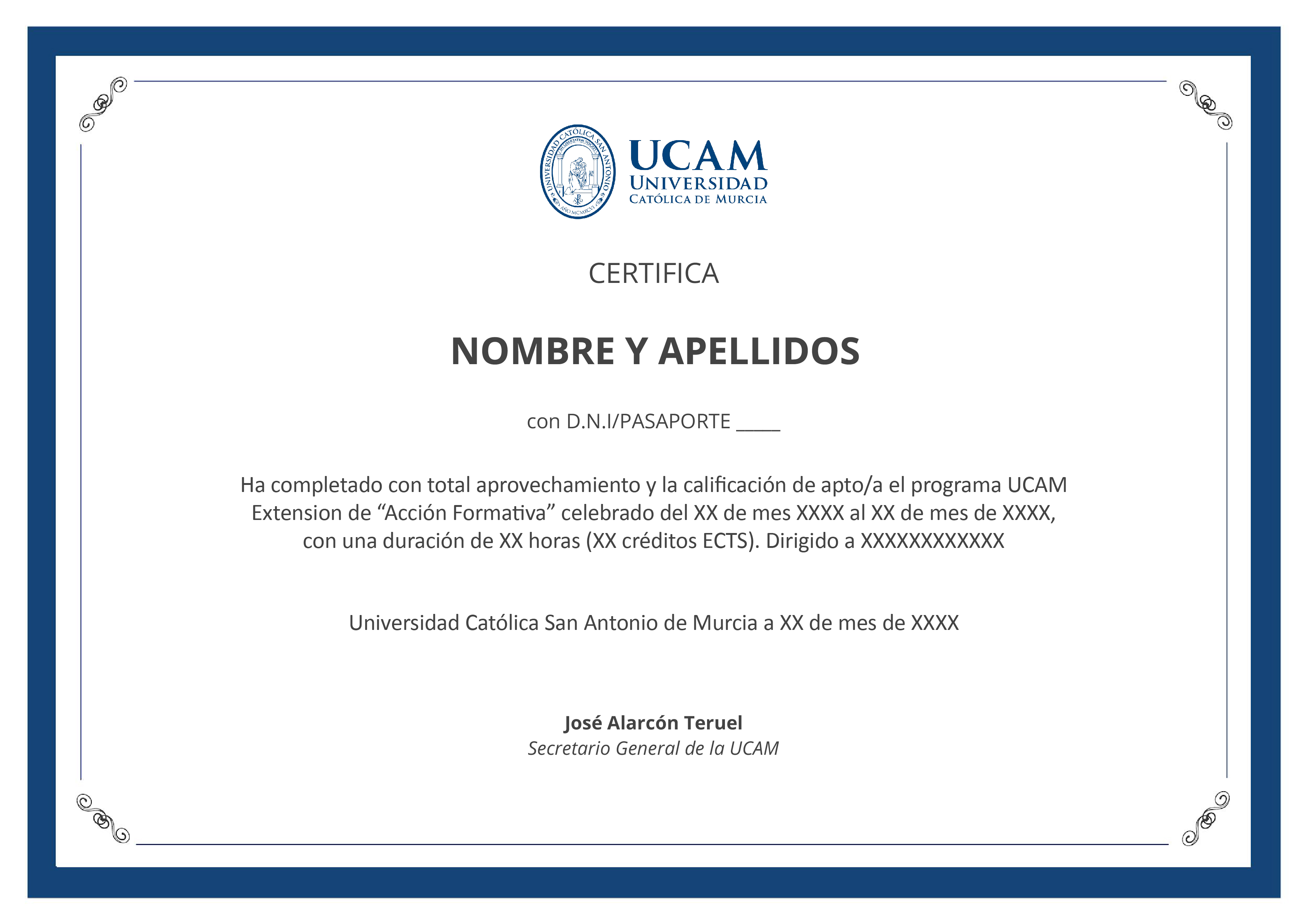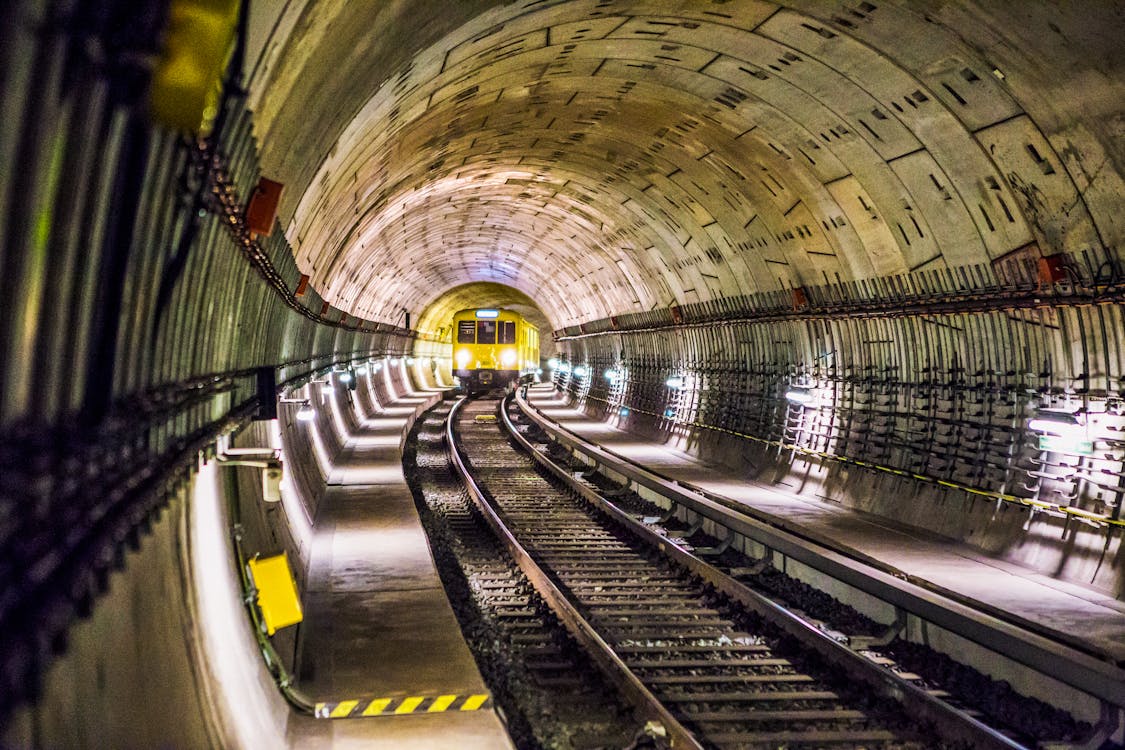Modalidad
Online
Duración - Créditos
1500 horas - 60 ECTS
Plataforma Web
24 Horas
Centro Líder
formación online
Profesionales
Docentes especializados
Acompañamiento
Personalizado
Reconocidos por:

Acreditados como:
Temario
MODULE 1. DESIGN AND CONSTRUCTION OF INFRASTRUCTURE SUBSYSTEMS
MODULE 2. DESIGN AND CONSTRUCTION OF SUPERSTRUCTURE SUBSYSTEMS
MODULE 3. DESIGN AND CONSTRUCTION OF POWER SUBSYSTEMS COURSE
MODULE 4. COURSE IN DESIGN AND CONSTRUCTION OF SIGNALLING AND TELECOMMUNICATIONS SUBSYSTEMS
MODULE 5. COURSE IN RAILWAY INFRASTRUCTURE MAINTENANCE
MODULE 6. MAINTENANCE OF RAILWAY SUPERSTRUCTURE
MODULE 7. ELECTRIFICATION MAINTENANCE OF RAILWAY
MODULE 8. MAINTENANCE OF RAILWAY SIGNALLING AND TELECOMMUNICATIONS SYSTEMS
MODULE 9. URBAN RAILWAYS
MODULE 10. MFP. MASTER’S DEGREE IN RAILWAY INFRASTRUCTURE DESIGN, CONSTRUCTION AND MAINTENANCE. SPECIALTY IN UNDERGROUND URBAN TRANSPORT INFRASTRUCTURES
Opiniones
Lo que dicen nuestros alumnos:
Raymond Brown
Manchester
I believe it has a very affordable price; the value that the training provides exceeds the pounds it costs.
Ronan Schultz
Washington D. C.
Thanks to being online, I was able to learn about railways and everything related to them during my free time at work.
Janet Cooper
Cambridge
I decided to do it because of the degree it offered; thanks to it, I have been able to validate my studies in this professional field.
Katherine Thomas
Leeds
The tutor was very attentive, resolved all the doubts that arose in me in short periods of time, I am very grateful for the attention he gave me.
Jane Mckinney
Phoenix
I found it to be a great program; I acquired a lot of knowledge through this master s degree.
Plan de estudios








Titulación de master railway underground infrastructure




Master Railway Underground Infrastructure
Do you want to boost your professional career? Are you looking for a study method that allows you greater flexibility? If your answer to these questions is yes, don't miss this opportunity! Now, Euroinnova International Online Education offers you the chance to pursue a Master Railway Underground Infrastructure, which will provide you with the necessary knowledge to enhance your customer relations.
This is the boost you needed to enhance your professional skills, and Euroinnova International Online Education provides you with the tools to achieve it!

Don't miss this opportunity, and if you're not convinced, keep reading!
Expand your knowledge about railways with this master's program. The railway is a means of transportation that has been used and, in some cases, is still used to transport goods. Its operation is based on the use of metal rails on which the vehicle moves in a self-propelled manner. Due to this, it can carry a very heavy load, often exceeding a ton.
This mode of transport emerged during the Industrial Revolution and has since represented a technological and industrial advancement. Thanks to railways, large quantities of goods could be transported to distant places, opening up a world of possibilities and conveniences.
Importance of the railway The train has been a significant advancement for society, as it has connected distant regions of the earth. With the emergence of this mode of transportation, trade and transport routes were established, shortening distances and making journeys much faster.
Its importance is so great that when it first appeared and its beneficial aspects were realized, public administrations wanted to take charge of its management.
Characteristics of the railway
The characteristics of transportation modes tend to be quite similar, and in the case of the railway, they include the following:
- High carrying capacity, which benefits commerce.
- International connectivity.
- Very safe mode of transportation, as the track is not used by any other vehicle.
- Environmentally friendly.
- Due to its focus on heavy cargo, the speeds attained are not usually very high.
- Cost-effective.
- Intermodal.
Despite offering many possibilities and being highly successful at its inception, railways have lost a significant share of their previous users over time, not only at the national level but also in Europe.
This situation has several main causes, among which a poorly managed system and the high cost of necessary infrastructure stand out. Consequently, maintaining a railway has become a challenging process, and many railway stations are currently underused. Additionally, it's worth mentioning that there are now many other services in the same field that are more agile and faster, making the competition tougher.
Currently, the European Union is working to position the railway as another viable alternative, given its lower environmental impact and numerous benefits, as we have seen before.
Why take this Master Railway Underground Infrastructure with Euroinnova International Online Education?
Don't miss the opportunity that Euroinnova International Online Education is offering you to expand your knowledge in the field of transportation. With the Master Railway Underground Infrastructure, you can balance your studies with your personal life. Moreover, you will receive a degree issued by the Catholic University of Murcia in collaboration with Structuralia.
Now you can achieve training at the best price and from home, the online modality offers you a great number of benefits. With this master's program, you will be able to develop your knowledge in the field of railways. Get the chance to study while combining it with your job, studies, or any other activity that takes up most of your time on a daily basis. Enroll to have expert professionals in tutoring who will assist you in resolving any possible doubts that may arise during this master's program.
With just an internet connection and having enrolled, you can enhance your professional skills in this sector. Achieve the job you had always dreamt of in a comfortable and straightforward manner with the support of our professionals.
If you still have doubts, get in touch with us through our contact form. Take advantage of the benefits of online training with Euroinnova.
If you want to explore more programs related to the Master Railway Underground Infrastructure, check out our extensive catalog of diplomas, master's degrees, courses, and more.
We look forward to welcoming you to Euroinnova International Online Education with the Master Railway Underground Infrastructure!

¡Muchas gracias!
Hemos recibido correctamente tus datos. En breve nos pondremos en contacto contigo.




